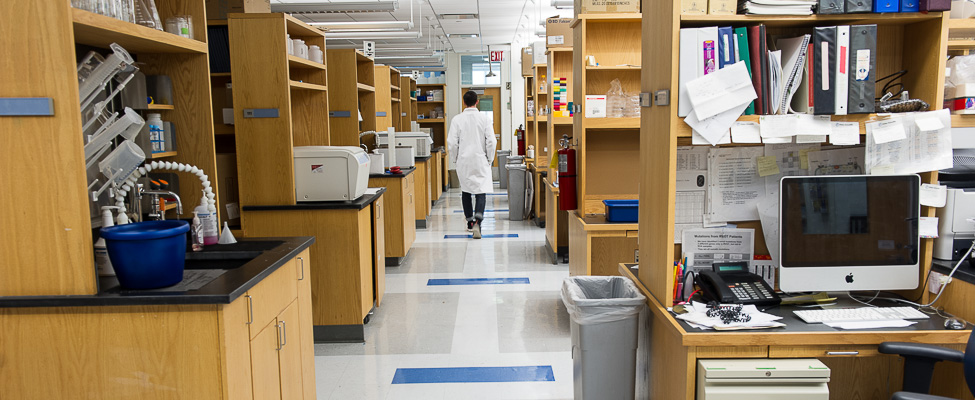Research
The Maurice R. and Corinne P. Greenberg Division of Cardiology is committed to producing groundbreaking clinical and translational research in science and medicine that advances the understanding of cardiovascular conditions and treatments and improves patient lives.
“Without forward-thinking research, we would be doing the same thing and treating patients the same way, without growing or improving.”
- Dr. Jim Cheung, Professor of Medicine
Clinical and Translational Research
As a part of an academic medical center, the Maurice R. and Corinne P. Greenberg Division of Cardiology conducts cutting-edge clinical and translational research that improves treatment and care for all patients—and our patients most immediately. Research at academic medical centers, including Weill Cornell Medicine, continue to find new and better ways to understand, detect, control, and treat health conditions.
Translational research focuses on finding ways to apply basic science research to practical applications and practice, bridging the gap between scientific discovery and advances in medical practice and policies. Clinical research focuses on the effectiveness and safety of emerging medical advances. Unlike laboratory research, clinical research utilizes volunteers and includes mechanisms of human disease, therapeutic interventions, clinical trials, and/or the development of new technologies.
As a world-renowned academic medical center, medical students, post-doctoral students, residents, and fellows research under the guidance of faculty mentors to enhance their training and assist in Weill Cornell Medicine’s contribution to scientific and medical advancements. Our division conducts projects and trials to answer difficult scientific and health questions. For example, our physician-scientists are currently investigating the efficacy and safety of many new drugs and devices, including heart valves, ablation therapies, and heart failure medications not available elsewhere. Our numerous clinical trials also aid in research findings improve patient care by evaluating emerging therapies, drugs, and tools.
How Our Research Benefits Patients
As a result of our research, our team of cardiologists have a highly specialized understanding of the heart’s mechanisms and many disorders. They also have a greater awareness of the newest treatments, innovations, and devices for all patients. As a patient you have access to newer technology, advanced imaging technology, highly specialized physician-scientists who are at the forefront of their field, the newest treatments, and an abundance of clinical trials.
History of Achievements in Research
Our research mission builds on nearly a century of innovations, such as the:
- Origins of cardiac rehabilitation and cardiac psychology
- Electrocardiographic recognition of acute myocardial ischemia and myocardial infarction
- Clinical introduction of anticoagulation
- Vasoconstrictor-volume understanding of hypertension, elucidation of the renin-angiotensin axis, and the clinical introduction of ACE inhibitors into medicine
- Cellular and molecular bases for the right ventricular outflow tract tachycardia


